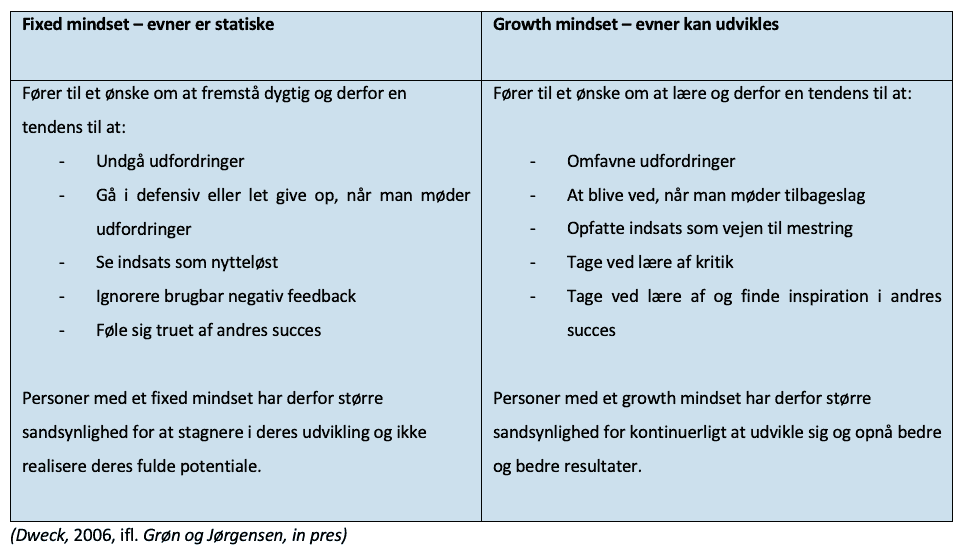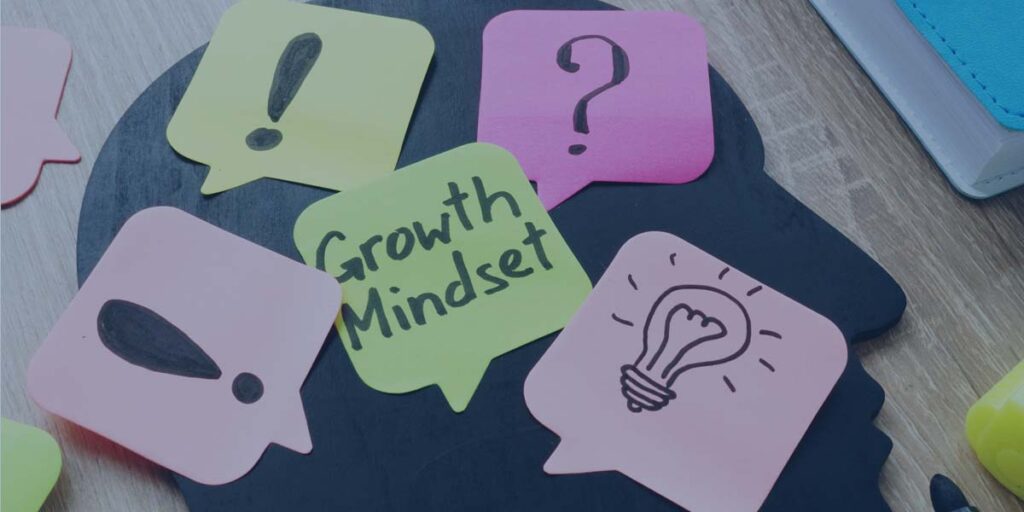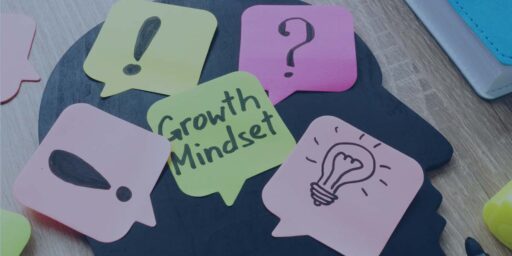Your thoughts on effort and mistakes determine your success
All organizations have certain mindsets that have a significant impact on how their employees think and act - and ultimately on the success of both the employees and the organization. For example, are setbacks and mistakes something to be hidden at all costs, or is it a natural part of the evolution towards top performance?
In this short article, you will learn about the differences between a fixed and a growth mindset. You will also get some tips on how you can work on developing a growth mindset in your organization.
This article is a short excerpt from a longer article published in Signatur. You can read the original version here.
What is mindset in an organizational context - and why is it important
Some of the world's leading companies, including Microsoft, have long since embraced the mindset concept as a central part of their organizational culture work. Developed by Professor Carol Dweck at Stanford University, the mindset concept describes two fundamentally different views of abilities and development opportunities.
A fixed mindset subscribes to the idea that ability is innate and therefore you either have it or you don't. People with a fixed mindset are convinced that it is our innate abilities that determine our success. Therefore, effort also plays an unimportant "supporting role". Effort and hard work can even be seen as proof that you don't have the right qualities. Because if you did, effort would be superfluous.
A growth mindset subscribes to the idea that ability is something that can be developed. Hard work and mistakes are therefore seen as natural elements in the development towards peak performance. People with a growth mindset are committed to developing the skills they are born with. They see abilities as dynamic and believe they can be developed and cultivated through practice and persistence.
Growth mindset versus fixed mindset
Mindset shapes our views on areas such as ability, effort and mistakes that are crucial not only to the success of individuals, but also to organizations.
Several of the world's leading companies have embraced growth mindset thinking as a central focal point for working with their culture.
A key element in creating a growth mindset culture is about creating a culture where it is safe to make mistakes, where feedback is part of everyday life, and where the large amount of energy that is often spent on appearing competent at all costs internally within the organization is converted into value-creating behavior that develops employees and strengthens the organization's business.
A fixed mindset culture can have several serious consequences. For example, individuals with a fixed mindset find it very difficult to accept critical feedback, which is an inevitable part of daily life and professional development. Brain research shows that people with a fixed mindset "escape" from critical feedback, meaning they don't take it to heart and therefore don't learn from their mistakes. They are preoccupied with what they did well, not what they can improve. In a world where nothing stands still, this is an almost certain recipe for failure for both individuals and organizations.

How to get started developing a growth mindset culture
When companies invest in developing a growth mindset culture, it reflects a belief that the organization's culture is a key factor in its ability to succeed in the marketplace.
It encompasses all the practices that shape behavior on a daily basis. Everything from recruiting and onboarding new employees, the way you set goals and evaluate performance, to the way members of your organization interact with each other on a daily basis. And needless to say, leadership obviously plays a crucial role in making the effort to develop a growth mindset culture a reality.
If you're excited about developing a growth mindset culture, you can start by reflecting on the following:
- Does our culture encourage us to try to appear successful at all costs, or do we see failure as a natural part of the evolution towards peak performance?
- Do we see development potential in everyone or is talent and development reserved for a select few "stars"?
- How do our values and organizational practices support a growth mindset culture - are there areas that set people up for inappropriate internal competition, create fear of failure and undermine an open feedback culture?
- How do we recruit new leaders - is there more talent outside the organization or is there a lot of potential to be found internally?
- What is the balance between individual and team-based rewards, KPIs and development initiatives?
- Do our goal systems support unethical behavior, shortcuts and a single-minded focus on reaching the goal regardless of the cost and consequences?
- How do we weigh competency and cultural fit when hiring new employees?
- What is our feedback culture like - is it normal and safe to receive and give feedback to colleagues to help them develop their growth mindset and skills?
- Do we celebrate hard work or effortless perfection?
If you have any doubts, let me call you with personal guidance
Rasmus Thy Grøn
Partner
Cand. Psych. Ph.D. scholarship holder
gain deeper insights into Growth Mindset
Get inspiration and new perspectives on how to develop growth mindset cultures and why organizations should work on developing a growth mindset culture.
We also give you 5 tips for practicing leadership that supports a growth mindset.


